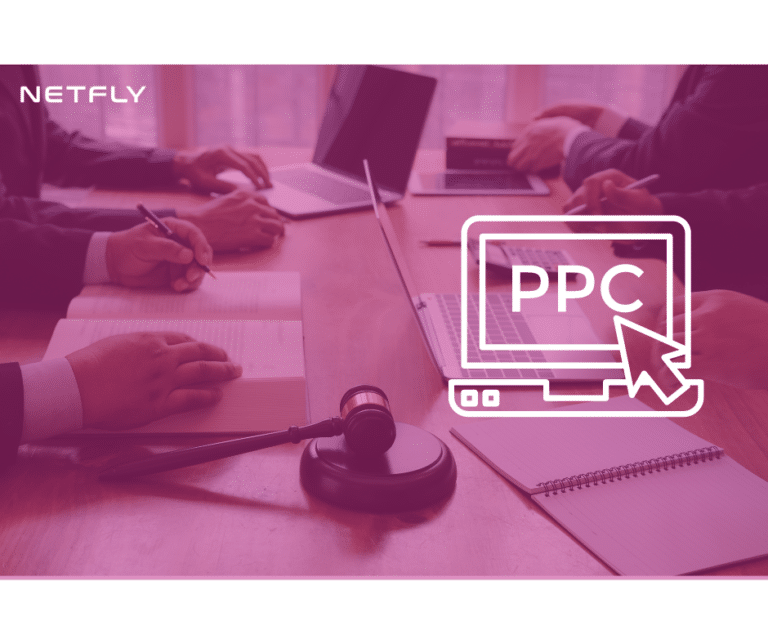Key Takeaways
- Understanding Your Audience is Crucial:
Knowing who you target is the first step to effective SEO. Tailor your content and keywords to meet your potential clients’ needs and concerns. - Keyword Research is the Foundation:
Perform thorough keyword research to pinpoint the search terms used by your prospective clients. Mix broad, high-traffic keywords with specific niche terms to draw in the most pertinent visitors. - Mobile Optimization is Non-Negotiable:
In a mobile-first world, ensuring your website is mobile-friendly is essential. This improves user experience and aligns with Google’s mobile-first indexing. - Content Quality is Key:
High-quality, informative content engages readers and establishes your authority in the legal field. Integrate keywords naturally and focus on providing value. - Local SEO for Local Dominance:
For most law firms, local SEO is vital. Optimize for local searches to make your firm more visible in your community. - Link Building Enhances Credibility:
Acquire high-quality backlinks to enhance your website’s credibility and its position in search engine results, emphasizing ethical link-building methods. - Website Speed Affects User Experience: A quick-loading website maintains user engagement and lowers bounce rates, positively impacting SEO.
- Social Media Boosts Engagement:
Leverage social media channels to foster connections and direct traffic towards your website. - Regular Tracking and Analysis:
Use tools like Google Analytics to monitor your SEO performance and make data-driven adjustments. - Stay Informed and Adapt:
SEO is an evolving field. Keep up with trends and algorithm updates to stay ahead.
Intoduction
Law firms must pay attention to their online presence in the must-pay attention that would lead to a client. SEO, or Search Engine Optimization, isn’t just a buzzword; it’s an essential lifeline in the vast ocean of the internet. As Seth Godin would say, “Being the best in the world is seriously underrated.” This is your guide to becoming the best in the digital world for your specific legal niche.
Understand Your Target Audience
“Marketing is no longer about the stuff you make, but about the stories you tell.” Start by knowing who you’re telling these stories to. Your clients aren’t just “clients” but individuals with unique needs and concerns. How old are they? What are their most pressing legal issues? Delve deep. The better you understand your audience, the more effectively you’ll speak their language.
Perform Comprehensive Keyword Research
Keyword research is like fishing; you need to know what your fish are biting. Start by identifying your potential clients’ terms and phrases when searching for legal services. Use tools like Ahrefs, Semrush, Moz or Google Keyword Planner. Remember, it’s not just about high-volume keywords; niche terms can bring the most relevant traffic to your shore.
Optimize Your Website for Mobile
In today’s fast-paced world, your website must be fast too. . Mobile optimization isn’t just a convenience; it’s a necessity. Like a well-tailored suit, your website should fit comfortably in the palm of a hand. Test your website’s mobile responsiveness, and ensure it’s as agile and accessible as your legal advice.
Develop High-Quality, Relevant Content
Content marketing is all the marketing that’s left,” says Godin. In law, your content showcases your expertise—craft articles, blog posts, and guides that not only engage but inform. Weave in your keywords like a skillful storyteller, but don’t let them overpower the narrative.
Implement Local SEO Strategies
For law firms, the battleground is often local. Use local SEO tactics to dominate your territory. Claim your Google My Business listing, sprinkle local keywords throughout your site, and gather reviews from local clients. It’s about making your digital footprint as prominent in your community as your physical one.
Utilize Link Building Techniques
Think of links as roads leading to your firm. The more reputable these roads, the more traffic and trust you build. Network with legal directories, write guest posts, and engage in community events. Remember, in the realm of SEO, quality trumps quantity.
Enhance Website Speed and Performance
A slow website is like a slow lawyer – no one wants one. Optimize your site’s loading times to keep potential clients engaged. Regularly check your website’s speed and performance, and ensure it’s as efficient as your legal team.
Leverage Social Media Platforms
Social media is your digital handshake. It’s where you build relationships, not just followers. Post your content, interact with your followers, and reveal your law firm’s personal touch. Each platform is a different room at a networking event; navigate them with purpose and personality.
Track Your SEO Performance
“Without data, you’re just another person with an opinion.” Use the Google Analytics to monitor your website’s effectiveness. What’s working? What’s not? SEO isn’t set-and-forget; it’s a constant process of refinement and improvement.
Stay Updated with SEO Trends and Algorithm Changes
SEO is an ever-evolving beast. Staying informed about changes in algorithms and trends is crucial. Subscribe to SEO blogs, attend webinars, and never stop learning. In the world of SEO, complacency is the enemy.
Conclusion
As you embark on your journey to SEO success, remember that it’s a marathon, not a sprint. Each step you take builds a more substantial online presence, attracting more clients and establishing your firm as a thought leader in your field.
Ready to transform your law firm’s online presence? Start with these steps, and if you need a guiding hand, our team is here to help. Contact us for personalized advice and strategies tailored to your firm’s unique needs. Because, in the end, it’s not just about being found; it’s about being chosen.
Frequently Asked Questions
Q1: How long does it take to see results from SEO efforts?
A1: SEO is a long-term strategy. It can take several months to a year to see significant results. Patience and consistency are key.
Q2: Is SEO a one-time activity?
A2: No, SEO is a continuous journey. Search engine algorithms are always shifting, and competitors are persistently updating their tactics. Regular work is needed to keep and enhance your rankings.
Q3: Can I do SEO myself, or do I need to hire an expert?
A3: While basic SEO can be handled in-house, especially with the guidance of blogs and resources, complex aspects require an expert’s touch. The decision depends on your firm’s resources and the complexity of your SEO needs.
Q4: How important is social media for law firm SEO?
A4: Social media itself doesn’t directly impact SEO rankings, but it’s vital for brand visibility and can drive traffic to your website. It’s also a platform for engaging with potential clients and building your brand’s reputation.
Q5: Do online reviews affect my law firm’s SEO?
A5: Yes, particularly for local SEO. Good reviews can boost your presence in local search listings and strengthen your firm’s trustworthiness. Urge happy clients to post feedback on sites like Google My Business.










